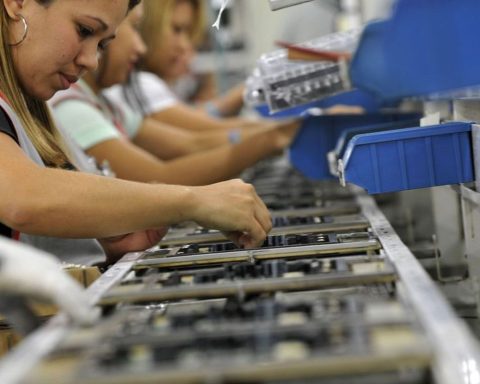The Automotive industry was crowned this year as the preferred by Argentine workers, followed closely by those of software & IT and tourismaccording to the results of the 2022 edition of Randstad’s Employer Brand Research.
Transportation and logistics, consumer goods, banking and finance, and health carecomplete the seven sectors that achieved the best performance this year between level of knowledge and level of attractiveness of employers.
Variables such as being financially sound, offering quality training and providing long-term job security managed to build a positive image of these industries, which obtain an important advantage with this positioning when it comes to attracting and retaining talent in a market in which the scarcity of qualified profiles tends to become more acute.
On the other hand, the study revealed that one in three Argentines intends to change their place of work during 2022a figure slightly higher than that registered during 2021 (30%), showing an upward trend, which is closer to the values of exchange expectations registered in the pre-pandemic.

Andrea Ávila, CEO of Randstad for Argentina and Uruguay, stated that “the passage of the coronavirus has left more clarity in people regarding their personal and professional goals and that has a direct impact on the assessment of their current work and on the need or not to change”.
“Today we see a greater empowerment of the workforce that is driving an increase in mobility and turnover in companies because people are more open to taking risks to approach a job that is more aligned with their values, personal purpose and that allows them to better work-life balance,” he said.
On the other hand, a Bumeran study revealed that one in four people in Argentina suffers or suffered workplace harassment or mobbing; however, 82% prefer to share the workplace with their team rather than work alone from home.

According to the survey “How is coexistence at work” carried out by the Bumeran job portal to its users, 46% said that policies against mobbing are not implemented in their workplace, 41% do not know if they exist or not this type of measure and 13% say yes.
“The people of Argentina are the most affected by workplace harassment in the region. The other countries that participated in the study show numbers below 25% of Argentina: 20% of Chile suffer or have suffered workplace harassment, 17% of Ecuador, 11% from Panama and Peru,” said Carolina Molinaro, director of Marketing at Bumeran.
Regarding the fact that 82% of Argentine people prefer to share the workplace with their team compared to 18% who prefer to work alone from home, Molinaro analyzed: “it seems that the pandemic passion for remote work found its limit: the human need to inhabit a space with other people in order to develop bonds and share experiences”.


















